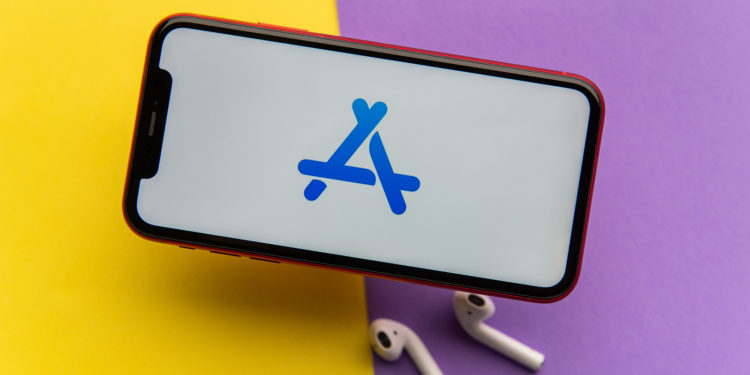Earlier last month, Spotify, Tile and Match (owner of Tinder) testified at a U.S. Senate hearing on App Store antitrust. During the hearing, Spotify called Apple's App Store "an abusive power grab" while Tile said Apple was using its platform to "unfairly limit competition for its products."
In response to these statements, Apple’s Vice President and Chief Compliance Officer, Kyle Andeer, has written a letter to US Senator Amy Klobuchar, who is leading the hearing, outlining Apple’s response (via 9to5mac). In the letter, Apple says Spotify, Tile and Tinder are some of the "largest and most successful [developers] on the App Store" and that their statements "focus more on complaints related to business disputes with Apple than on competitive concerns with the App Store."
App Store: Spotify criticizes Apple's payment system
Spotify is one of the App Store's most vocal critics and has long questioned Apple's in-app purchasing system, which gives the company a 30 percent commission on all purchases made. Apple has called its own system safe for users and developers, and Spotify plans to challenge that statement. During the hearing, Spotify stated that if Apple truly believes its own system is "superior," it should allow third-party payment methods in the store.
If Apple believes that their payment system is so superior that they really should charge a 30 percent fee, they should allow competition and let the market dictate. Let supply and demand dictate.
Apple is fighting back, saying Spotify's claim that its own in-app purchasing system is uncompetitive is false and that it meets or exceeds "intense competition." Apple explains that before the App Store came into existence in 2008, developers had a difficult time with software distribution and that any attempt to distribute their apps was extremely expensive. When the App Store launched, it only charged developers a 30 percent commission on purchases, which Apple says helped "lower the barriers to entry for software developers."
“Spotify itself also benefits from the App Store commission structure”
Since then, we've never increased commission; we've only lowered it, including for subscriptions and small businesses, or we've eliminated it altogether in certain situations, like with the Reader Rule and Multi-Platform Rule. Today, about 85% of apps pay no commission, and the vast majority of developers who must pay commission can pay as little as 15% by participating in our Small Business Program. The rest - those who earn more than $1 million a year selling digital goods or services on the App Store - pay a 30% commission (which is reduced to 15% for subscription services after the first year).
Apple goes on to say that Spotify itself has benefited from the App Store commission structure, as it "pays a commission on less than one percent of its premium subscribers, and that commission is always only 15%." As for Spotify's latest concerns, Apple says that despite the music streaming giant's statements during the hearing, developers are not prohibited from informing users of the ability to purchase in-app purchases, such as subscriptions, elsewhere, such as on the web. Apple correlates this rule to not being able to, for example, post a sign at a Verizon location informing customers to buy an iPhone from Apple instead.
Apple isn't banning developers from communicating with their customers; Apple is simply saying that developers can't get customers who are on the App Store to leave the App Store and go elsewhere—just as Apple can't put up a sign in the Verizon store telling customers to buy iPhones directly from Apple instead. This rule has long been followed by retailers in both the physical and digital worlds. As for Apple, this common-sense rule has been in place since 2009, before Spotify launched on the App Store. Spotify launched, grew, and thrived under these rules. But now Spotify apparently either wants Apple to change them, or Spotify to hold itself to a different standard than everyone else.
Tile sold poorly in Apple Stores
Tile, which makes tracking devices, claims that Apple's new AirTag represents unfair competition. Among the points raised by Tile's witnesses was the complaint that Apple keeps certain technologies, such as ultra-wideband, for its own devices. As a reminder:
However, Apple is constantly making features, functionalities and APIs available for third parties to develop themselves. Weeks ago, Apple publicly announced that a draft of the UWB specification for chipset manufacturers would be published this spring.
Tile further claimed that because Apple sold its tracking devices in Apple Stores, Apple had information from the retail stores that it then used to develop AirTags. Apple explains:
Years ago, Apple had some information about how Tile products were selling in Apple's retail stores. They didn't sell well. Tile sells its products through dozens of retailers around the globe and its own website. Any information from Apple Store retail sales is both very limited and very out of date, and likely no different than the information other brick-and-mortar stores have about the products sold in those stores. Nonetheless, Apple has never used that information to make its decisions regarding AirTags.
In its letter to the U.S. Senator, Apple also addressed concerns raised by Match, the owner of dating network Tinder. Tinder has raised concerns about underage users on the App Store and that Apple is not doing enough to restrict them. Apple disagreed, saying it is "committed to making the App Store a safe and trusted marketplace, including by supporting parents with parental controls." Finally, Apple stated that it shares the subcommittee's commitment to "foster competition and innovation, enable developers to thrive, and support the success of great American ideas." (Photo by Burdun / Bigstockphoto)





